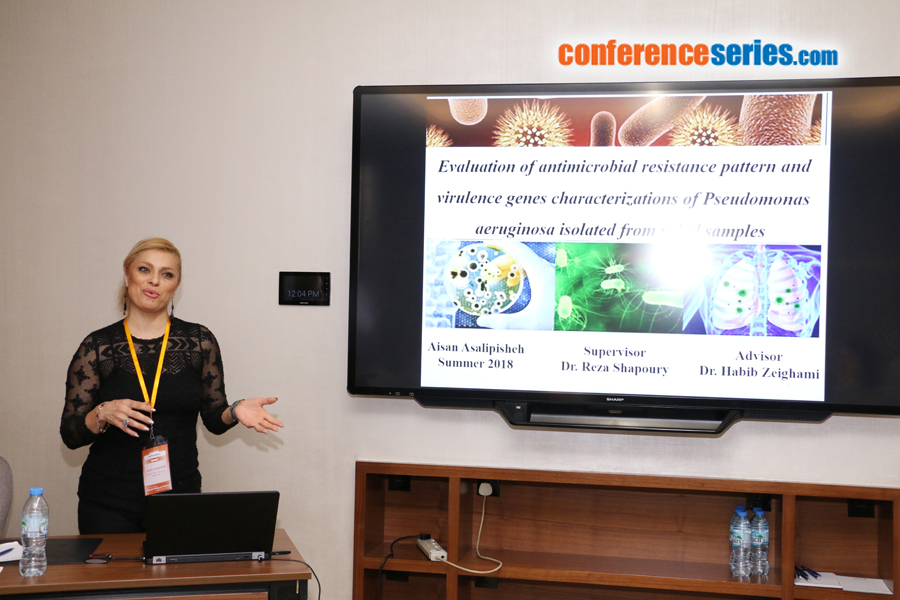
Aisan Asalipisheh
Islamic Azad University of Zanjan, Iran
Title: Evaluation of antimicrobial resistance pattern and virulence gene characterizations of Pseudomonas aeruginosa isolated from salad samples
Biography
Biography: Aisan Asalipisheh
Abstract
Introduction & Aim: Pseudomonas aeruginosa is the major cause of nosocomial infections and is considered as an opportunistic pathogen. Several reports indicate that the organism can also cause infections in healthy hosts. Further, evidence has suggested that there are no major differences in virulence between clinical and environmental isolates. Consuming raw vegetables that have been contaminated by this organism could have serious implications on human health. The aim of this study was to identify Pseudomonas aeruginosa virulence factor genes (Exotoxin A, Exoenzyme S, Elastase and Alginate genes) which are isolated from salads.
Method: In this cross-sectional study, 200 salad samples were collected from restaurants located in Qazvin during 6 months. After identification of isolates by biochemical tests, the antibiotic susceptibility test (Kirby-Bauer method) was done according to Clinical and Laboratory Standards Institute (CLSI) advice against 13 antibiotics. After DNA extraction from isolates, PCR with specific primers were done for detection of Exotoxin A, Exoenzyme S, Elastase and Alginate genes.
Results: Pseudomonas aeruginosa was isolated from 25 salad samples out of 200 samples (12.5%). The highest and lowest resistant against isolates (25 samples) related to Cefotaxime with 95% and Imipenem with 21.6% resistant respectively. Frequency of Exotoxin A, Exoenzyme S, Elastase and Alginate genes were 44%, 16%, 44% and 44%, respectively.
Conclusion: Our results showed that the frequency of Pseudomonas aeruginosa in salads was high. This study confirms the rapidity and sensitivity of PCR analysis in identifying isolates which contribute in early monitoring, accurate analysis and control of microbial risks in food products.


